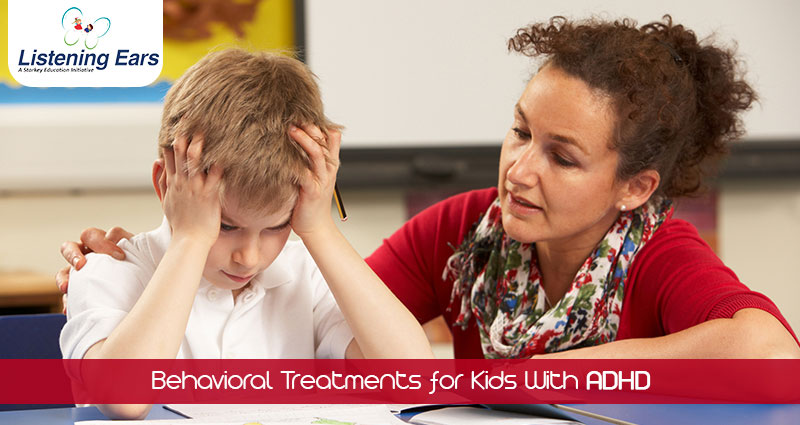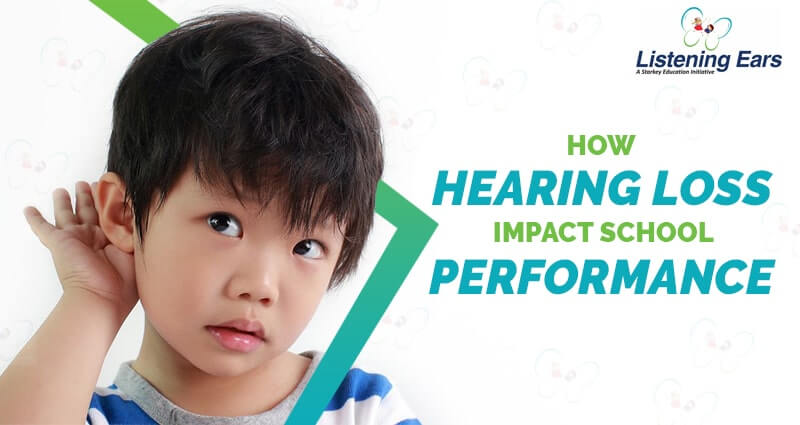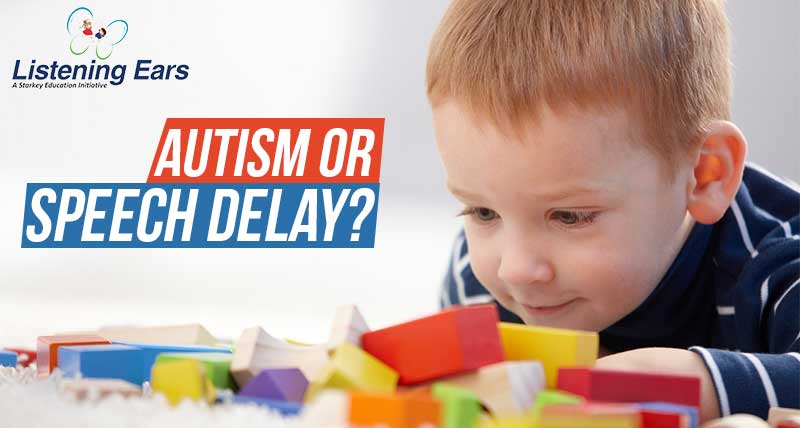Behavioral Treatments for Kids With ADHD

Cleft Lip and Palate is a Birth Defect but it Can be Treated
January 10, 2019
Speech Delay in Children is not Always Due to Autism
February 14, 2019There are two kinds of behavioral interventions that can help children with ADHD manage their symptoms of hyperactivity, impulsiveness, and inattention. These ADHD therapies don’t affect the core symptoms, but they teach children skills they can use to control them. Some focus on strategies for staying organized and focused. Others aim at cutting down on the disruptive behaviors that can get these children into trouble at school, make it difficult for them to make friends, and turn family life into a combat zone.
Some children, especially those with severe ADHD symptoms, benefit from behavioral therapy along with medication; for others, the training may make enough difference to enable them to succeed in school and function well at home without medication.
One important reason for kids to participate in behavioral therapy (whether or not they also take medication) is that ADHD medications stop working when you stop taking them, while behavioral therapy can teach children skills that will continue to benefit them as they grow up.
For behavior problems
For kids whose impulsive behavior is creating conflict at home and getting them into trouble at school, therapy can help them rein in the behavior that’s problematic and establish more positive relationships with the adults in their lives. It’s called, generally, parent training, because it involves working with parents and children together. It trains parents to interact differently with children, in order to elicit desirable behavior on the part of the child and discourage behavior that’s causing him trouble.
Parent training is not just for children with ADHD, but since kids with ADHD are often prone to tantrums, defiance, and tuning out parental instructions, it can substantially improve their lives, and the wellbeing of their whole families. Though it focuses on interaction with parents, it’s also been shown to reduce outbursts and other problem behaviors at school, as the skills kids learn in responding to very predictable parental interactions are transferrable to other settings. The training is generally done by clinical psychologists.
There are several kinds of parent training that have been shown to be effective, including Parent-Child Interaction Therapy (PCIT), Parent Management Training (PMT), Positive Parenting Program (Triple P). They all teach parents how to use praise, or positive reinforcement, more effectively, as well as consistent consequences when kids don’t comply with instructions. They result in better behavior on the part of children, decreased arguing and tantrums, better parent-child interactions, and reduced parental stress.
Young children with ADHD often find themselves scolded or punished much more than they are praised, so a clear way to earn positive attention from the most important people in their lives can be a big motivator. It’s not unusual for kids who’ve been negatively affected by their behavior problems—kicked out of preschool, black-listed from play dates—to make dramatic improvements through parent training.
Early interventions
Young children with ADHD can benefit from systems that encourage positive behavior. These approaches pinpoint specific goals for behavior in school, give kids feedback on how they’re doing, and reward them for meeting those goals successfully.
Parents and teachers work together on the Daily Report Card. Teachers choose goals for an individual child based on the behaviors that present the biggest challenges for him. Goals might involve academic work (finishing tasks), behavior towards peers (reducing teasing or fighting) and adherence to classroom rules (not interrupting, staying in his seat, following instructions). The teacher rates the child’s performance each day on each goal. He gets a star or a check for each positive behavior, and if he gets enough during the day, there is a prize for him when he gets home—coveted screen time or some other small reward.
This kind of system can be very helpful for children from preschool to as old as 12.
For attention problems
The other broad area of behavioral help for kids with ADHD includes skills-based interventions to teach techniques they can use to stay on top of their schoolwork and manage their responsibilities at home. This kind of training, which is done by learning specialists, teaches kids skills to maximize their strengths and compensate for their weaknesses.
Children with ADHD tend to be weak in what we call “executive functioning.” Executive functions are the all daily activity or self s
To bolster kids with weak skills in these areas, learning specialists teach a mix of specific strategies and alternative learning styles that complement or enhance a child’s particular abilities.
With elementary school children, the learning specialist usually works with parents and kids together, to establish routines and tools to use to get work done successfully and with minimal conflict. For instance:
- Checklists can be useful for anything from getting out of the house on time in the morning to doing homework after school to the bedtime routine. Since the steps necessary for completing a task often aren’t obvious to kids with ADHD, defining them clearly ahead of time, and posting them prominently, makes a task less daunting and more achievable.
- Educational therapists also recommend assigning a time limit for each step, particularly if it is a bigger, longer-term project. Deadlines can sneak up on all of us, but kids with ADHD are particularly susceptible to underestimating how long it will take to do something.
- Using a Planner is essential for Kids with ADHD who have what’s called poor working memory, which means it is hard for them to remember things like homework assignments.
- A rewards chart at home, as well as at school, can help motivate kids who are easily distracted and struggle to acquire new skills.
For middle and high school aged students, educational therapists work with kids to develop systems for tackling the work, both organizationally and academically. For kids with ADHD, managing their time and school materials can be a huge issue—not leaving enough time to study or complete projects, forgetting to use their planner, losing track of assignments. Materially, their backpacks may be a disaster, notes Dr. Michael Rosenthal, a neuropsychologist. Specific skills like studying, memorizing, note-taking, and doing assignments on time can all be addressed.
And executive functions apply to academics, as well as managing homework, explains Dr. Rosenthal. Reading, writing and math all involve skills kids may be weak in. A middle schooler might be a perfectly fluent reader, he explains, but at the same time have difficulty capturing the point of each paragraph or summarizing what she’s read. Writing requires organizing thoughts into a narrative, imagining what the intended audience needs to know, staying on topic, and writing to a chosen length, among other skills. Math requires multi-step operations, and word problems require extracting the information important to solve the problem. These are all skills that educational therapists can focus on with children to strengthen their learning strategies.
Spelling out the rationale
While a child is learning new skills, he needs to understand how they will help him. “Kids with attention problems, in particular, are very pragmatic in a way about how much effort to put into things,” explains Dr. Matthew Cruger, director of the Child Mind Institute’s Learning and Development Center. “We think of it as ‘neuroeconomics’ — they save their energy for things they are confident will pay off.” A good educational therapist will structure skill building so that kids score successes. “When kids put hard work into something, they expect a return, and if they don’t see the return, it’s doubly frustrating,” says Dr. Cruger. “They’ll think, ‘You see, it wasn’t a good idea to try.’”
The bottom line
The frustrating thing about behavioral interventions like parent training and Daily Report Card is that they are labor-intensive for parents and teachers, in addition to the kids themselves. “Parents may have the preconception that when they bring a child for therapy the child is going to be doing the work,” notes Dr. Jill Emanuele, a clinical psychologist at the Child Mind Institute. “But this takes a huge investment on the part of parents.” On the other hand, she adds, “the training can be a huge help to parents, too, who often come to us feeling burned out and ineffective in handling these kids. They develop a lot of confidence.”
There is evidence that these parent and teacher-based interventions do improve the outcome for children with ADHD, though they don’t directly affect symptoms. “Ideally, these environmental adjustments will alter the developmental trajectory of the child or adolescent with ADHD,” explains ADHD specialist Dr. Russell Barkley. “However, such interventions are not expected to produce fundamental changes in the underlying deficits of ADHD, rather they only prevent an accumulation of failures and problems secondary to ADHD.”
The strongest gains, Dr. Barkley notes, are in children who are particularly defiant or oppositional. “Thus, researchers and clinicians should anticipate,” he notes, “that long-term studies are more likely to find treatment effects on problems secondary to ADHD than on deficits specific to ADHD.”
Teenagers with ADHD
Once children with ADHD reach adolescence, there is less evidence for the effectiveness of behavioral training. Several studies have failed to show results for cognitive behavioral therapy for teens with ADHD, Dr. Barkley explains, but CBT does have a role for kids with ADHD who develop secondary problems like conduct disorder and oppositional defiant disorder.
And Dr. Emanuele notes that since ADHD puts kids at risk for developing an anxiety or mood disorder, many of them are treated with CBT for those disorders. In some cases, she notes, kids have actually outgrown their ADHD symptoms but they’re still struggling.
Reference: Caroline Miller




